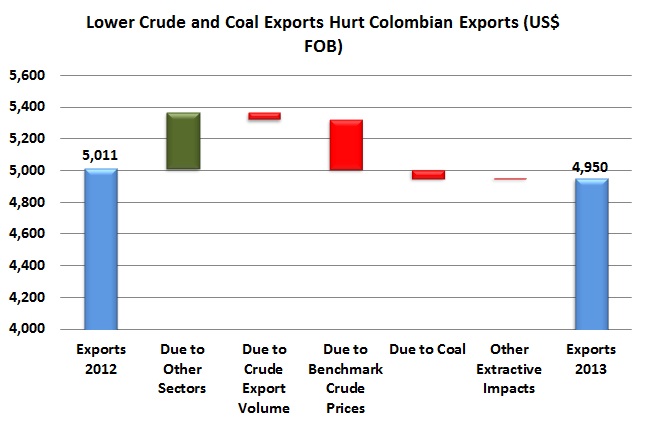Government and Farc negotiators resumed talks in Havana this week, as the focus now moves past the land reform deal into new fronts, with a constant hum of politics and controversy as a backdrop along with constant positioning ahead of next year’s elections.

The total value of fuel and products derived from extraction in Colombia dropped 12% in the first quarter of 2013 to US$12.52B from US$14.23B a year ago, pushing Colombian exports as a whole to drop 7.3% in that period.
Road blockades in the communities of Cumaral, Acacías, Puerto Lópex and Villavicencio have blocked truck routes used to transport crude with protestors calling for the government to remove the heavy vehicles passing through the area.
Canacol Energy says it has started drilling an exploration well as part of its Oso Pardo I expedition project carried out jointly with ConocoPhillips.
Attacks on Ecopetrol’s pipeline infrastructure have nearly doubled in 2013 and as of the end of May, the count had reached 90, a radio report quoted an Ecopetrol executive as saying.
Juan Gabriel Uribe, standing minister of the Ministry of Environment and Sustainable Development (MinAmbiente) told an environmental forum in Orinoquia that he will introduce a bill to regulate seismic activity for oil production in the area.
The Minister of Mines and Energy Federico Renjifo told bankers at a recent banking convention that growing hydrocarbons production in Colombia requires significant investments in coming years, creating an opportunity for the financial sector.
The director of the ANLA said that plans are on track to have reference terms for the environmental licensing of nonconventional exploration and production by November.

This article is not about Interoil despite the title of the graph. Instead, Interoil’s recent May production announcement brought us to this graph which we thought illustrated perfectly a more universal issue.
Natural gas producer Promigás has been offered up to US$100M in financing from the Interamerican Development Bank to improve its “Brilla” lending program due to its success in helping the bottom of the pyramid.